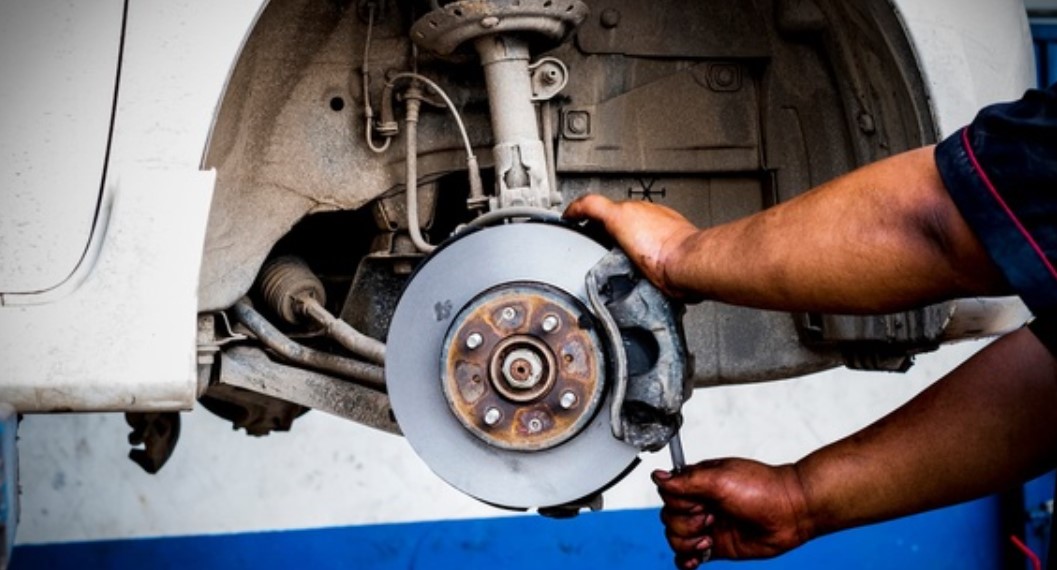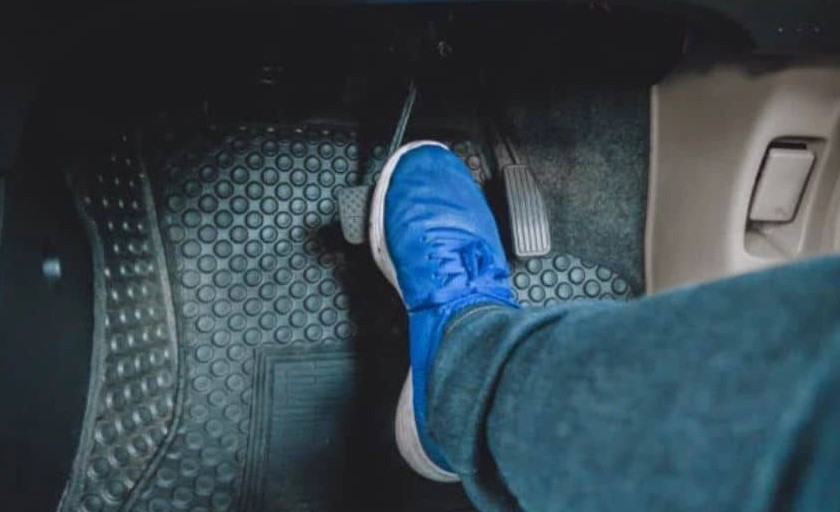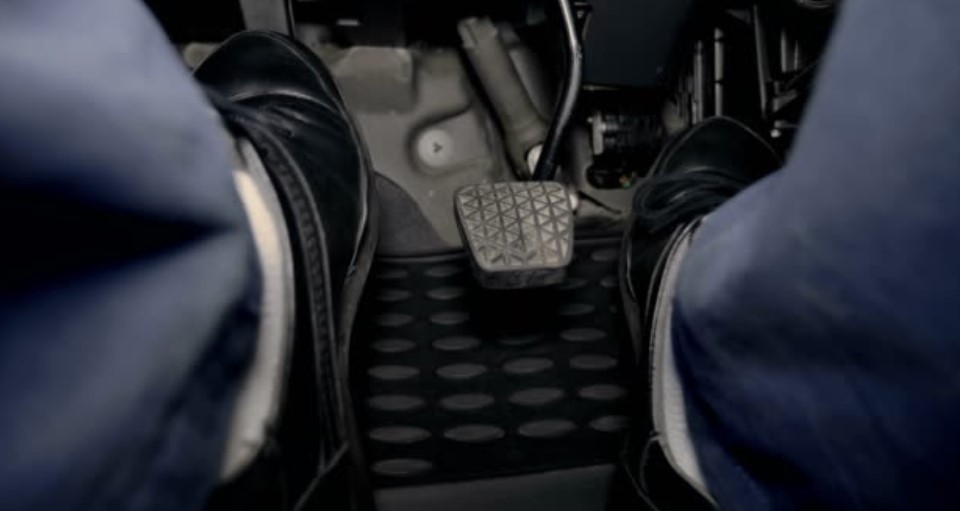Car Makes Clicking Sound When Pressing Brake Pedal (Causes and Fixes)
There may be a few different reasons why your vehicle produces a peculiar clicking sound whenever you hit the brake pedal. In this blog article, we will discuss the possible reasons for the sound as well as various remedies to the problem.
Your brakes may be clicking for several reasons, including a stone that has been embedded in the braking system, brake pads that are worn out or missing, a rotor that has become distorted, or an anti-rattle spring that is no longer functioning properly. Another possible explanation for why your brakes click when you press the brakes while turning is that the wheel bearing has worn out. This explanation is less likely to be the cause.
Ineffective Breaking System Due to Stone
The most common cause of the brakes clicking when they are applied is a stone that has been lodged in the braking system. This causes the pressure to be distributed unevenly across all four wheels, which is the consequence of the stone. This instability is the root cause of the clicking sound that occurs when the brakes are applied.
To find a solution to this issue, you will first need to look for any stones that are visible and that could have been lodged in any part of the braking system. If you find one, remove it as quickly as possible with a pair of pliers. You may need to unscrew the brake calipers to search the inside of them for pebbles if there are no stones visible.
After any stones have been removed from the braking system, it is essential to inspect all of the components for any signs of wear and damage that may have been caused by their presence. Additionally, it is essential to make certain that everything is still in working order before reassembling the system.
The rotors are inspected for hot spots and uneven wear, the screws and bolts are checked to ensure that they are securely secured, the brake pads are examined for odd wear patterns, and the seals are checked to ensure that they are still intact.
Retired Brake Pads
The brake pads on any vehicle may get worn out, which poses a severe danger to the vehicle’s safety. Worn brake pads may produce a clicking sound whenever you apply pressure to the brakes. When the areas are too thin to provide enough cushioning, the metal of the rotor and the caliper get exposed and start grinding against each other. This is the reason why this occurs. Metals may sometimes come into touch with one another as a consequence of this, which may lead to excessive wear and tear, damage, and disturbances.
Whenever you are trying to diagnose a clicking noise that is produced by worn-out brakes, it is very important to examine for wear on the brake pads. If there is less than one-eighth of an inch (about three millimeters) on each side, the residence is most likely worn out and has to be replaced. Be on the lookout for any rust or discoloration on the rotor, as this may indicate that the brake pad cushioning is insufficient, which may lead to overheating or excessive usage of the brakes.
Because worn-out brake pads are the cause of a clicking noise, the good news is that it is not always required to make substantial repairs or costly component replacements to stop the clicking noise. Purchasing new brake pads that are designed particularly for the make and model of your vehicle and replacing the ones that are already in place is the most common solution. It is important to make sure that the replacement brake pads you choose for your vehicle are specifically designed for your vehicle since they will be analyzed and tested to meet your requirements and driving style.

Brake calipers that are lax
The brake calipers may be considered an essential component of the braking system of any vehicle. When you push down on the brake pedal, the brake pads are meant to be forced onto the rotor. This friction with the braking rotor is what causes your vehicle to slow down. On the other hand, when these calipers get slack, they have the potential to generate a clicking sound.
Your brakes may click as a consequence of loose brake calipers if one of two things has occurred: either the bolts that are keeping the caliper bracket together have become loose, or the sliding pins that are attaching the caliper to the frame have been stuck. If one of these two issues is the reason for the clicking sound that is emanating from your brakes, there are simple solutions that you may use.
The first thing you should do to figure out why your brakes are making a clicking sound is to examine all four wheels and make certain that all four calipers are securely attached to their respective brackets by checking for any loose bolts or nuts. In the case that they are loose, you should tighten them using a proper wrench or socket set, along with some thread lock fluid, to prevent them from becoming loose in the future.
If tightening the bolts does not resolve the issue, the sliding pins on your device may have gotten stuck as a result of rust or other impurities that have accumulated on them over time. It is necessary to use a wire brush or emery cloth in conjunction with a small hammer or mallet to liberate the four sliding pins. To provide extra protection against corrosion in the future, it is necessary to reconnect them to their original positions while using a generous amount of fresh anti-seize lubricant. There is a solution to this issue that involves spraying brake cleaner on all four sliding pins and the areas around their attachment points.
Wheels with Warped Brakes
One of the most common issues that arises is the development of warped brake rotors, which result from an excessive accumulation of heat inside the braking system. When you brake for an extended period or repeatedly apply force, heat will build up. As a result of the heat, the rotor is warped, which results in an uneven surface. Because it is not aligned properly with the brake pads, this uneven surface has the potential to produce vibrations and maybe even a clicking sound when the brakes are applied. Because this issue will only get more severe over time, it is very necessary to handle it immediately to avoid more damage.
Reheating the Brake Rotors to a Burnish
Depending on the severity of the condition, there are a few different approaches that you may use to repair brake rotors that have been warped. Although “burnishing” is the fastest treatment, it is not a dependable method. In addition to being used to “break in” new rotors that have been replaced, burnishing may also be used in situations when the rotors that are already in use are somewhat bent.
During the process of slowing down from 40 miles per hour to 20 miles per hour, you should apply moderate to light pressure on the brake pedal in increments of around 30. Because sudden stops might cause further damage to your heated brake rotors, you should make sure that you do this move on a road that is clean and free of any traffic.
The burnishing process will cause the rotors to get hot and settle into an even surface as a result of the operation. However, this method is not very dependable since it may not fix the fundamental problem of an excessive accumulation of heat in your braking system. This condition is the root cause of the problem.
Altering the Rotors in Place
A more reliable remedy is to replace brake rotors that have been deformed. When you are changing the rotors, it is important to choose a high-quality rotor that is better able to handle heat to prevent additional warping. To prevent any possible harm to the other components of the braking system, replace the brake pads and examine them. It is possible to permanently fix warped brake rotors by doing this, provided that you take care not to overheat the brake rotors again by applying excessive driving force.
If you try any kind of repair, you should be very cautious to follow all of the directions to the letter. Failing to do so might result in much more costly damages that need professional treatment rather than basic home maintenance, which would end up costing you more money than is required in the long run.
Reduced Anti-Rattle Spring Wearing Out
The clicking sound may be coming from an anti-rattle spring that is located under the brake pads and has been worn out or corroded. The purpose of this spring is to ensure that all of the components engage simultaneously during the braking process by regularly distributing pressure and absorbing any excessive movement that may occur in the brake pad.
It is impossible for this spring to efficiently absorb the braking force and to distribute pressure uniformly over the brake pad when it rusts or wears out. Inconsistent braking action and a clicking sound while using the brakes are the effects of this, which causes gaps to form between the brake pad and the rotor. This noise, if neglected, might result in extra costly repairs in the future, in addition to being unbearable and irritating.
To our good fortune, the majority of individuals who have a fundamental grasp of car maintenance can readily replace an anti-rattle spring that has been worn out or corroded. Listed below is a video that illustrates how to successfully do that task.
Loose Bearings on the Wheels
When you apply the brakes or make a turn, you may hear a clicking sound. This is one of the most common signs that a wheel bearing is going to become loose, which may lead to a variety of problems that are quite annoying. When the wheel bearing is not placed properly, it will move about and make noise as it supports the wheel and the components that make up the wheel wheel.
The incorrect installation or maintenance of a wheel bearing is the most common cause of a loose wheel bearing. This may be an indication that the instructions were not properly tightened or greased during the assembly process, or that they were not appropriately examined to ensure that they remain in excellent condition. There are a few scenarios in which the wheel bearing may have worn out due to prolonged usage or for reasons related to aging.
To determine whether or not your brakes are clicking as a result of a loose wheel bearing, it is important to first examine the wheel hub assembly for any obvious signs of wear or damage, such as cracks or increased usage. It is important to examine the suspension linkages and ball joints, along with other connected elements, for any signs of wear or slackness. If everything seems to be in order, you should take your vehicle for a test drive on a road that is smooth and make a turn while softly using the brakes. If you hear a clicking sound, your brakes are likely being affected by a wheel bearing that is not properly secured.
To repair this issue, you will need to replace the worn-out wheel bearings that you now have with brand-new ones. When changing bearings, it is important to choose high-quality bearings that have been pre-lubricated with grease before installation. This will guarantee that the bearings will not need any further lubrication after installation.
Use either hand tools or an impact wrench with low torque settings to tightly tighten all of the bolts. This will prevent any additional damage from occurring as a result of overtightening. It is recommended that you give your vehicle another test drive once the component has been appropriately fitted. This will allow you to determine whether or not the clicking noise has occurred. If it has not, then another issue may be the cause, which would need more investigation.
Final Thoughts
Several different components inside the braking system of your vehicle are capable of producing a clicking sound whenever you press the brake pedal. It is of the utmost importance to identify the fundamental cause of this issue to take the appropriate measures and prevent any detrimental effects from occurring in the long run.
Inspect any worn components, such as brake pads, rotors, calipers, and wheel bearings, for signs of wear and tear before trying any repairs. If anything seems beyond repair or is too tough to manage at home, you should take it to a trained technician as soon as possible so that they may detect and solve any underlying issues as soon as possible.

